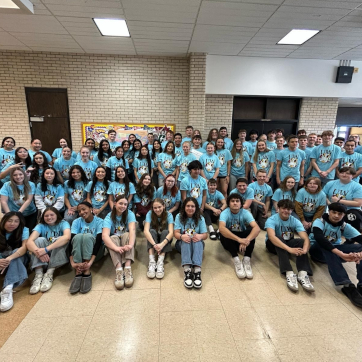Language Levels
Please use the ACTFL, WIDA, or SLPI guidelines to determine your student’s language level.
| ACTFL | WiDA ACCESS | Composite Scores | SLPI | |
| Level 1 | Novice Mid | Beginning | 1.0-1.9 | Novice |
| Level 2 | Novice High/Intermediate Low | Emerging | 2.0-2.9 | Survival |
| Level 3 | Intermediate Mid | Developing | 3.0-3.9 | Intermediate |
| Level 4 | Intermediate High | Expanding | 4.0-4.9 | Advanced |
| Level 5 | Advanced/Native Speaker | Bridging | 5.0-6.0 | Superior |
Guidelines
- All competition submissions must address this year’s theme.
- Each must have a beginning, middle, and end. The beginning must include the presenter’s name, school, and presentation title.
- Students may compete at World Languages Day a maximum of two times: once as an individual performer and once in a group in any of the specified categories of competition. This does not include the People’s Choice Art Award, which is a separate event for World Languages Day.
- These rubrics will be used by the judges for competition submissions. The final score will be an average of the relevant components on a scale of 1 (lowest) to 3 (highest). As an example a performance of Goethe’s “Der Erlkönig” would not include a score for “originality” since it is an existing work.

Students recite an existing or original work of cultural value entirely in the target language. Students may use notes, but no reading aloud. Judged based on enthusiasm, expressive skills, comprehensibility, content and creativity, delivery, and originality.
Students must produce the video with a minimum of 50% original content that is unique to the medium. No live performance presentations. Maximum length is 5 minutes. Copyrighted materials must include credit and the student must be identifiable as the producer of the target language. Judged based on enthusiasm, editing skills, comprehensibility, content and creativity, delivery, and originality. Upload videos to YouTube and submit a link on the registration form.
Entries must explicitly address the theme in level-appropriate language as a short story, poem, or essay. Entries must include a first page with writer's name, title of the piece, target language and level. Judged on three levels: Novice (level 1), Intermediate (level 2-3), and Advanced (level 4-5). Judged based on theme fit and content, creativity, richness and diversity, and accuracy and communication. No use of online tools. Any portion of work written with online tools (such as a translator) or copied from other sources will automatically disqualify the submission from the competition.
The plot of the story must relate to the theme. Word counts: a minimum of 250 for intermediate and a minimum of 500 for advanced level. Format in Times New Roman 12-point font, double-spaced, 1.5 inch margins, left justified.
Word counts by level: a minimum of 40 words for novice, 80 words for intermediate, and 120 words for advanced. If you are employing short forms (such as haiku, epigram, etc.), you may submit multiple examples of this form as a single entry to meet the aforementioned word count requirements. Font and font size are at poet’s discretion, but must be legible.
The theme should be addressed in the essay by answering why is it important or what it means to you. Word count: 250 words or less for intermediate and 500 words or less for advanced. Format in Times New Roman 12-point font, double-spaced, 1.5 inch margins, left justified, MLA citation formatting. Quotations should be no more than 10% of the total essay.
Existing work: poem, drama, live song, cultural presentation. Original Work: ASL Slam (original poetry), storytelling, song interpretation, ABC/# stories. Judging will include clear presentation of the PARAMETER of ASL.
No digital submissions will be accepted. Competitors in this category must bring their submissions to Laramie. Students may submit one original work of art that creatively addresses the theme through drawing, painting, photography, mixed media, or sculpture. Submission size limits: 2-dimension max. 36” x 24”, 3-dimension max. 36” x 24” x 24”. Each submission is individual and must include an artist’s statement with name, title of artwork in the target language and English, and a level-appropriate explanation in the target language and English on how the artwork addresses the theme.

